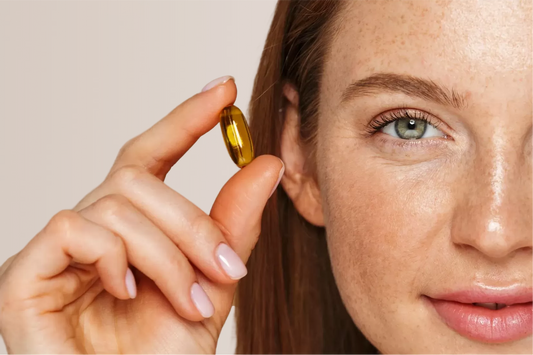What can i take to lower my blood pressure?
What can i take to lower my blood pressure?
If you've been diagnosed with high blood pressure, or hypertension, you may be wondering what steps you can take to lower your numbers and improve your cardiovascular health.
Whether you've recently been told your blood pressure is too high or have been managing hypertension for years, the information in this article will provide you with the knowledge and tools you need to optimize your cardiovascular wellbeing without relying solely on medication.
So, what can i take to lower my blood pressure? Let's dive in and uncover the various options available to you.
What is blood pressure?
Blood pressure is the force exerted by the blood against the walls of the blood vessels as the heart pumps blood throughout the body. It is measured in millimeters of mercury (mmHg) and consists of two numbers: systolic (the top number, representing the pressure when the heart contracts) and diastolic (the bottom number, representing the pressure when the heart relaxes).
Normal blood pressure is less than 120/80 mmHg. Hypertension is diagnosed when blood pressure is 130/80 mmHg or higher.
What is high blood pressure (hypertension)?
High blood pressure, or hypertension, occurs when the force of the blood pushing against the artery walls is consistently too high. According to the search results:
- Normal blood pressure is less than 120/80 mmHg.
- Hypertension is diagnosed when blood pressure is 130/80 mmHg or higher.
- Blood pressure higher than 180/120 mmHg is considered a hypertensive emergency or crisis, requiring immediate medical attention.
Untreated high blood pressure can increase the risk of serious health problems like heart attack, stroke, heart failure, kidney disease, and vision loss.
It is often called a "silent killer" because it usually does not cause any symptoms until it has already caused damage. The causes of hypertension can be lifestyle factors like diet, physical inactivity, obesity, and excessive alcohol use, as well as genetic and underlying medical conditions. Lifestyle changes and medications can help lower and manage high blood pressure.
What can i take to lower my blood pressure?
Nutritional Changes to Lower Blood Pressure
Eating a healthy diet low in sodium, saturated fat, and added sugars can help reduce blood pressure. Foods that can help lower blood pressure include fruits, vegetables, whole grains, lean proteins, and low-fat dairy.
How to Lower Blood Pressure Naturally
In addition to dietary changes, other natural ways to lower blood pressure include regular exercise, stress reduction techniques, limiting alcohol intake, and quitting smoking.
Supplements That May Help Lower Blood Pressure
Certain supplements like garlic, hibiscus, and omega-3 fatty acids may also help lower blood pressure. bHealth Shop offers a variety of high-quality supplements that can support healthy blood pressure levels
Can Drinking Water Lower Blood Pressure?
Staying hydrated by drinking plenty of water throughout the day can help lower blood pressure. Dehydration can cause blood pressure to rise.
Additional Drinks That Lower Blood Pressure Quickly
Other beverages that may help lower blood pressure include unsweetened coffee, green tea, and tart cherry juice.
10 ways to control high blood pressure without medication
- Lose extra pounds and watch your waistline: Losing just 10 pounds can help reduce blood pressure.
- Exercise regularly: Aim for at least 30-60 minutes of exercise most days of the week. Regular physical activity can lower blood pressure by 5-7 points.
- Eat a healthy diet: Follow a diet rich in whole grains, fruits, vegetables, and low-fat dairy while limiting saturated fat, cholesterol, and sodium. The DASH diet is recommended.
- Reduce sodium intake: Even a small reduction in dietary sodium can lower blood pressure. Aim for less than 1,500 mg per day.
- Limit alcohol: Drinking too much alcohol can raise blood pressure. Moderate intake (1 drink/day for women, 2 for men) is advised.
- Avoid tobacco: Smoking and secondhand smoke can temporarily increase blood pressure by 10 mmHg or more.
- Reduce stress: Techniques like meditation, deep breathing, and exercise can help manage stress and lower blood pressure.
- Monitor blood pressure at home: Home monitoring can provide a more accurate picture than readings taken in the doctor's office.
- Get support: Enlisting family and friends to support your lifestyle changes can help you stick to them.
- Try supplements: Certain supplements like garlic, hibiscus, and omega-3s may help lower blood pressure.
However, it's important to consult your healthcare provider for personalized recommendations
Nutritional Changes to Lower Blood Pressure
The DASH diet is a well-known and effective way to lower blood pressure. It emphasizes eating a variety of fruits, vegetables, whole grains, lean proteins, and low-fat dairy products. This diet is rich in potassium, calcium, and magnesium, which are essential for blood pressure control. It also limits sodium, saturated fat, and added sugars.
Foods to Include
- Fruits: Apples, apricots, bananas, dates, grapes, green peas, mangoes, melons, oranges, peaches, pineapples, raisins, strawberries.
- Vegetables: Beet greens, broccoli, carrots, collards, green beans, kale, spinach, squash, sweet potatoes, tomatoes.
- Whole Grains: Wholegrain rice, bread, pasta.
- Lean Proteins: Fish, skinless poultry, soy products.
- Low-Fat Dairy: Fat-free yogurt.
- Nuts and Seeds: Almonds, walnuts, pistachios.
- Legumes: Lentils, dried beans.
Foods to Avoid
- Processed Foods: Hot dogs, potato chips.
- Red Meat: High in saturated fat.
- Sugary Beverages: Sodas, fruit juices, sweetened tea.
- Alcohol: Excessive consumption.
- Licorice: Can interfere with blood pressure medications.
- Grapefruit: Can interact with certain blood pressure medications.
How to Lower Blood Pressure While Pregnant
If you are pregnant and have high blood pressure, there are several steps you can take to help lower it naturally:
Stay Hydrated
Aim for at least six to eight glasses of water per day. Staying hydrated can help lower blood pressure.
Exercise Regularly
Walking is a great low-impact exercise for pregnant women. Try to walk briskly for 30-45 minutes each day to help regulate blood pressure. Swimming and prenatal yoga are other good options.
Manage Stress
Use deep breathing, meditation, and relaxation techniques to help reduce stress, which can spike blood pressure. Lie down on your back, place your hands below your rib cage, and slowly inhale through your nose and exhale through your mouth.
Eat a Healthy Diet
Follow a balanced diet low in sodium and high in potassium-rich foods like fruits, vegetables, whole grains, and low-fat dairy. Avoid processed foods, canned goods, and salty snacks.
Avoid Alcohol
Drinking alcohol during pregnancy can raise blood pressure. It's best to avoid it completely.
Monitor Your Blood Pressure
Keep track of your blood pressure at home and report any concerning readings to your doctor. Dizziness, fainting, severe headaches, vision changes, and other symptoms warrant immediate medical attention.
Take Medications as Prescribed
If you are already taking blood pressure medication, continue taking it as directed by your doctor. Some medications may need to be adjusted during pregnancy.
How is blood pressure measured?
Blood pressure is measured using various techniques, primarily non-invasive methods. Here are the key points on how blood pressure is measured:
Non-Invasive Methods
-
Auscultatory Method:
- This is the traditional method using a sphygmomanometer, which historically used a mercury column to reflect the circulating pressure. The cuff is inflated, and the pressure is slowly released while listening for Korotkoff sounds through a stethoscope. The systolic pressure is recorded when the sounds first appear, and the diastolic pressure is recorded when the sounds disappear.
-
Oscillometric Method:
- This method uses automated electronic devices that detect variations in pressure oscillations due to arterial wall movement beneath an occluding cuff. The device inflates the cuff, then deflates it, and calculates the systolic, mean arterial, and diastolic pressures based on the data collected during the deflation cycle.
Invasive Methods
-
Intra-Arterial Catheter:
- This is the gold standard for blood pressure measurement, but it is invasive and impractical for routine use. It involves inserting a catheter into an artery to directly measure blood pressure.
How often should I have my blood pressure checked?
-
All adults 18 years and older should have their blood pressure checked regularly:
- Once a year for adults aged 40 years and older
- Once a year for people at increased risk for high blood pressure, including people who are overweight or obese, African Americans, and those with elevated blood pressure 120/80 mm Hg or higher
- Every 3 to 5 years for adults aged 18 to 39 years with blood pressure lower than 120/80 mm Hg who do not have other risk factors.
-
Your healthcare provider may recommend more frequent screenings based on your blood pressure levels and other health conditions.
-
Taking your blood pressure at home can provide additional data points. A typical approach is to take your blood pressure before breakfast and dinner for 5 days, giving you at least 10 readings to share with your provider.
- Checking your blood pressure every day at the same time can help you track your readings. Taking a few days' worth of measurements two weeks after starting a new blood pressure medicine can tell you if it's working.
The key is to have your blood pressure checked regularly, especially if you are at increased risk for hypertension. Discuss the optimal frequency with your healthcare provider based on your individual health profile and needs. Monitoring your blood pressure at home can provide valuable supplementary data to share with your doctor.
learn more about: 10 Ways to Promote a Healthy Lifestyle
What risks are increased by high blood pressure (hypertension)?
Uncontrolled high blood pressure significantly increases the risk of serious health conditions like heart attack, heart disease, stroke, kidney disease, vision loss, sexual dysfunction, atherosclerosis, and metabolic syndrome.
The higher and longer blood pressure remains elevated, the greater the damage. Controlling hypertension through lifestyle changes and medication when needed is crucial to reducing these risks. Regular checkups are essential, as high blood pressure often has no symptoms.
Can Drinking Water Lower Blood Pressure?
The relationship between water intake and blood pressure is not straightforward, as it depends on various individual factors. However, research suggests that in some cases, increasing water intake can help lower blood pressure:
-
Dehydration and High Blood Pressure: If blood pressure becomes elevated due to dehydration, drinking more water may help lower it. Dehydration can cause the blood to have higher sodium levels, which can lead to increased blood pressure.
-
Improved Kidney Function: Adequate water intake supports kidney function, enabling the kidneys to efficiently remove excess sodium and waste from the blood, which can help lower blood pressure.
-
Enhanced Blood Vessel Function: Proper hydration helps maintain appropriate blood viscosity, facilitating smoother blood flow and reducing strain on the cardiovascular system.
- Electrolyte Balance: Drinking enough water may help the body maintain the electrolyte balance required for healthy blood pressure regulation.
However, the amount of water needed to impact blood pressure can vary greatly from person to person based on factors like age, weight, climate, and activity level. A commonly recommended guideline is to aim for 8 glasses (64 oz) of water per day, but individual needs may be higher or lower.
It's important to note that while increasing water intake can be beneficial for some, it is not a cure-all for high blood pressure. A comprehensive approach including dietary changes, exercise, stress management, and potentially medication is often necessary to effectively manage hypertension. Consulting a healthcare provider is advised for personalized recommendations.
Regular monitoring of your blood pressure and working closely with your healthcare provider to manage high blood pressure through lifestyle changes and medication when needed can help you avoid reaching a hypertensive crisis in the first place.
Conclusion
High blood pressure, or hypertension, is a serious health condition that can significantly increase your risk of heart disease, stroke, kidney damage, and other life-threatening complications.
Remember, managing hypertension is a journey, and what works best for you may be different from what works for someone else. It's important to work closely with your healthcare provider to develop a personalized plan that addresses your unique needs and health goals.
By taking an active role in your blood pressure management, you can reduce your risks, improve your overall wellbeing, and enjoy a healthier, more vibrant life. So, don't wait - start implementing the tips and techniques outlined in this article today, and take the first step towards better heart health.
Frequently Asked Questions
-
Can drinking water really lower blood pressure?
- Yes, staying hydrated by drinking enough water throughout the day can help lower blood pressure. Dehydration can cause blood pressure to rise.
-
What supplements are effective for lowering blood pressure?
- Supplements like garlic, hibiscus, and omega-3 fatty acids may help lower blood pressure. bHealth Shop offers a variety of high-quality supplements that can support healthy blood pressure levels.
-
How often should I have my blood pressure checked?
- Adults should have their blood pressure checked at least once a year, and more frequently if they are at increased risk for hypertension.
-
What are the risks of uncontrolled high blood pressure?
- Uncontrolled high blood pressure can significantly increase your risk of heart attack, stroke, kidney disease, vision loss, and other serious health complications.
-
When should I seek medical help for a hypertensive crisis?
- If your blood pressure is extremely high (180/120 mmHg or higher) and you are experiencing symptoms like chest pain, shortness of breath, or vision changes, seek immediate medical attention, as this may be a hypertensive emergency.



